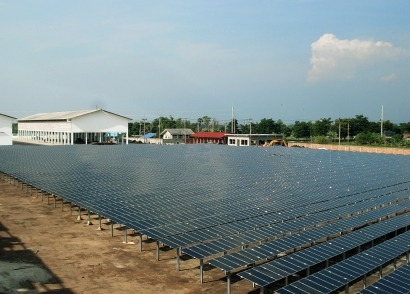
The project is being undertaken with Annex Power, the Bangkok-based systems integrator. It follows the completion of the 3 Mw Ayutthayas solar park, which was built in collaboration with Yanhee Solar and Ratchaburi Electricity.
“The current situation into Japan shows once again that we are on the right track with the increased investment into solar energy in Thailand,” said Dr. Supot Sumritvanitcha, founder and CEO of Yanhee Solar. “For me, it is a good feeling when our country, the environment and the global economy benefits from our investment.
“Furthermore, solar energy offers excellent returns for investors – especially if you have such highly efficient partners as we have,” Sumritvanitcha continued. “We have been extremely pleased with Conergy and Annex Power's performance with our first large-scale solar project in terms of quality, delivery and value. They have the technology and all the right people in place to deliver excellent quality from optimized systems design to on-schedule construction.”
The 12.4 MW plant will cover an area of 268,500m2, and be comprised of 56,000 Conergy PowerPlus Premium modules set on over 56km of Conergy SolarLinea mounting systems.
Over 200 Conergy IPG 15T string and 25 IPG 300C central inverters will also be utilised to feed the 19,500MWh of annual energy production into the grid. This energy will be used to supply more than 7,700 Thai households with solar electricity.
“This conscious decision for Conergy quality components shows that even in the price-sensitive Asian market, quality plays an increasingly important role,” said Alexander Lenz, president of Conergy South East Asia & Middle East. “With our comprehensive services, we deliver far more than just components.
“Our unique Output Insurance solution, underwritten by a third party insurance company, covers up to 90% of all yields for up to 10 years – previously this was almost inconceivable in Asia and now creates an outstanding planning and investment security,” Lenz said.
The project is backed by the Thai energy authority, the Department of Alternative Energy Development and Efficiency (DEDE), which recently revealed its intention to review the existing solar incentive scheme in the country, so that smaller residential systems can also benefit from the feed-in tariff.
For additional information:

